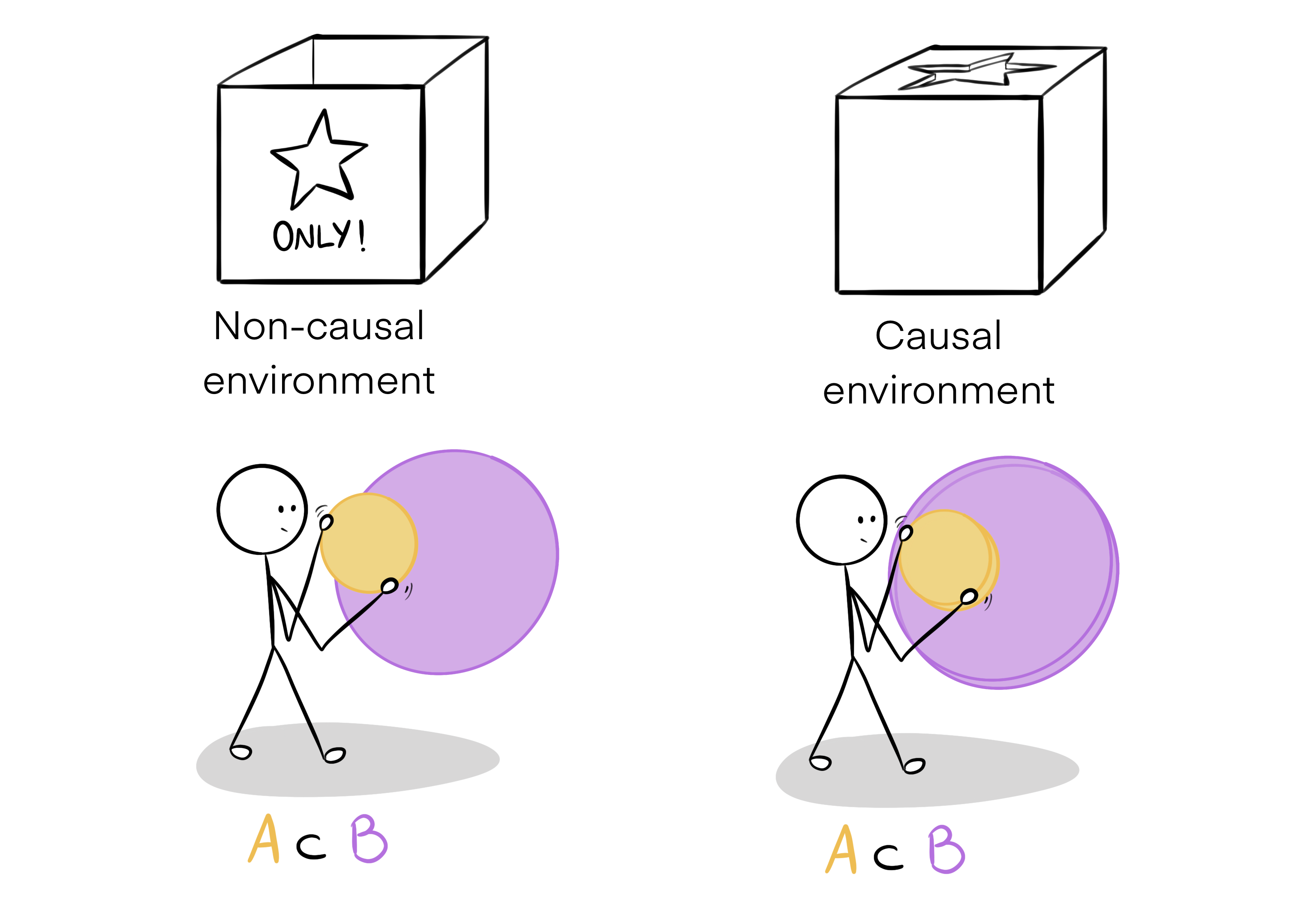Embodied & Causal
Aug 2024This project is founded by the Jacobs Foundation 2023 Young Scholar grant.
Adaptivity requires that learners appropriately generalize their knowledge across contexts: They must recognize which concepts are stable, rather than situation specific, and how they apply to novel problems. Human learners are highly adept at generalizing causal knowledge, readily extracting and extending the abstract principles that govern the relationships between events. However, learners typically struggle with generalizing abstract mathematical principles beyond the specific situations seen during classroom exercises, severely undermining mathematical literacy. We propose to design digital, embodied learning environments where to-be-learned mathematics govern the system’s causal relationships, thereby leveraging students’ natural abilities as learners to achieve adaptive mathematics knowledge.

More information coming soon...
Team
- Julia Chatain - Principal Investigator
- Liz Lapidow - Principal Investigator
- Rudolf Varga - Software Engineer
- Manu Kapur - Learning Sciences supervision